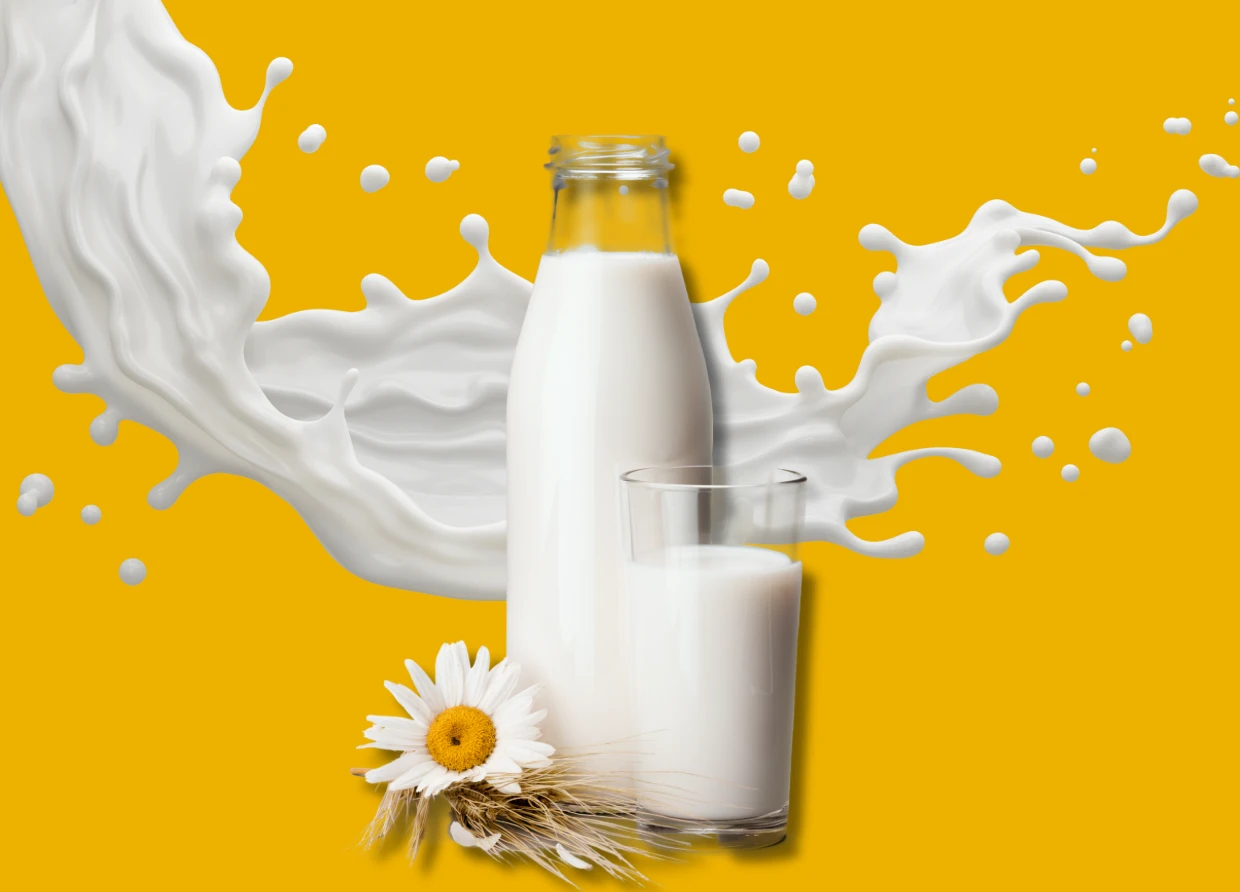WHOLE MILK, LOW-FAT, OR NO DAIRY AT ALL? THE TRUTH ABOUT WHAT’S REALLY HEALTHY
For decades we were told to ditch butter and whole milk. Now new research says dairy might be “neutral” for your health — but the story is a lot more complicated than it sounds.

If you grew up being told to drink skim milk and avoid cheese because of the fat, you weren’t alone. For years, U.S. dietary guidelines pushed three servings of low-fat dairy a day to keep hearts healthy. But now? Science is shifting — and some experts say the advice we’ve been following for decades might not tell the full story.
A recent review found that milk, yogurt, and cheese — whether full-fat or low-fat — are “neutrally” linked with cardiovascular disease risk. Translation: eating them doesn’t necessarily make you more likely to have a heart attack or stroke compared to a lot of other common foods.
Sounds like a win for ice cream lovers, right? Not so fast.
What “Neutral” Really Means
The keyword here is context. When researchers compared dairy to things like soda, refined carbs, or processed meats, dairy came out looking “neutral.” But swap it with healthier foods like nuts, soy, or whole grains? Suddenly, dairy doesn’t look so magical anymore.
One massive study following over 200,000 people for three decades found that:
- Choosing plant proteins (nuts, soy, legumes) instead of dairy lowered the risk of heart disease and early death.
- Replacing dairy with red meat increased those risks.
- Extra servings of full-fat milk were tied to higher mortality, but low-fat milk wasn’t.
So, neutral doesn’t mean harmless — it just means no better or worse than the unhealthy foods people usually eat instead.
The Politics of Milk
Even government policy is starting to catch on. A draft plan from the Trump administration — backed by RFK Jr. — suggested bringing back whole milk in schools and easing restrictions on butter. It reflects the growing belief that maybe saturated fat from dairy isn’t the villain it was once thought to be.
But experts warn that it’s not about swinging back to “full-fat everything” — it’s about balance.
Smarter Dairy Decisions
Here’s what Harvard nutrition professor Walter Willett recommends if you want to get it right:
- Go plant-based for fats: Olive oil, soy oil, and nuts are better long-term for your heart than butter or cream.
- Pick fermented dairy: Yogurt and cheese may be healthier choices compared to milk.
- Watch portions: One serving of full-fat dairy a day likely won’t harm you — but more than that can add up.
- Choose better swaps: If you go low-fat, don’t replace it with sugary “fat-free” products. Swap in nuts, seeds, or plant proteins instead.
- Experiment with alternatives: Minimally sweetened soy milk, for example, gives you protein without the extra saturated fat.
The Bottom Line
Milk and cheese aren’t the supervillains we once thought, but they’re not superheroes either. They’re… neutral. The real power move? Comparing them to what you’d eat instead. A slice of cheese may beat a slice of salami, but it won’t beat a handful of almonds.
So, next time you’re staring at the dairy aisle, remember: it’s less about which milk carton you grab and more about the overall story your food choices are telling.
#THE S MEDIA #Media Milenial #dairy debate #whole milk #low-fat dairy #nutrition myths #heart health #saturated fat #diet trends #healthy eating #Walter Willett #food science






















